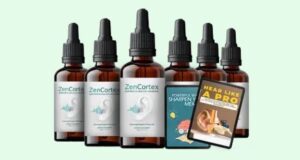Enhancing and Optimizing Hearing: A Comprehensive Guide
Hearing is a crucial sense that connects us to the world. It allows us to communicate, enjoy music, stay aware of our surroundings, and experience the richness of life. With technological advancements and research, improving and optimizing hearing has become an attainable goal. This article explores actionable strategies, tools, and resources to maintain and enhance your auditory health.
The Importance of Hearing Health
Hearing is more than a physiological function; it’s integral to our emotional and cognitive well-being. Hearing loss can lead to social isolation, communication difficulties, and even cognitive decline. According to the World Health Organization (WHO), over 1.5 billion people globally experience hearing loss, with nearly 430 million requiring rehabilitation.
Preventative measures and early interventions are essential to safeguard your hearing and enhance auditory performance.
1. Preventing Hearing Damage
Noise-induced hearing loss is one of the most preventable forms of hearing impairment. Protecting your ears from excessive noise is the first step toward optimization.
Wear Ear Protection:
If you’re exposed to loud noises, such as concerts, industrial work, or even power tools, use earplugs or noise-canceling earmuffs.
Limit Exposure:
Turn down the volume on personal devices and follow the 60/60 rule: listen at 60% volume for no more than 60 minutes at a time.
Monitor Sound Levels:
Use smartphone apps to measure decibel levels in your environment and identify potentially harmful noise sources.
2. Adopting a Healthy Lifestyle
Your auditory system is interconnected with your overall health. A balanced lifestyle can significantly impact your hearing.
Nutrition:
Include foods rich in antioxidants, vitamins A, C, and E, and minerals like zinc and magnesium. These nutrients support inner ear function and protect against damage.
Exercise:
Cardiovascular activities improve blood flow to the inner ear, ensuring that your auditory system receives essential nutrients and oxygen.
Avoid Smoking and Excess Alcohol: Smoking reduces blood flow to the cochlea, while excessive alcohol can damage auditory nerve cells.
3. Hearing Tests and Early Detection
Regular hearing assessments can help identify early signs of hearing loss. Early detection allows for timely intervention, improving outcomes and preventing further damage.
Professional Audiometry:
Schedule regular visits to an audiologist for comprehensive tests, especially if you’re over 40 or work in noisy environments.
Home Screening Apps:
Leverage technology to conduct preliminary hearing tests from your smartphone.
4. Leveraging Hearing Aids and Devices
Advancements in technology have revolutionized the way we manage hearing loss. Modern hearing aids are discreet, powerful, and tailored to individual needs.
Smart Hearing Aids:
Devices now come equipped with Bluetooth connectivity, noise-canceling features, and AI-driven sound optimization.
Assistive Listening Devices:
Tools like amplified telephones, TV listening systems, and personal sound amplifiers can bridge the gap for individuals with mild hearing loss.
Explore Innovations:
Cutting-edge products and programs designed to optimize auditory experiences are constantly here introduced. Discover solutions that suit your unique needs here.

5. Auditory Training and Brain Exercises
The brain plays a significant role in interpreting sounds. Training your auditory processing skills can enhance your ability to discern speech, especially in noisy environments.
Auditory Training Programs:
Apps and software can improve sound discrimination and auditory memory. Examples include games that challenge you to identify different tones or voices.
Cognitive Exercises:
Activities like puzzles, memory games, and learning new languages stimulate the brain and improve auditory processing.
6. Embracing Sound Therapy
Sound therapy is an alternative method that uses specific frequencies to stimulate the auditory system and brain.
Tinnitus Management:
Sound therapy can mask the ringing sensation associated with tinnitus, promoting relief.
Brainwave Entrainment:
Listening to binaural beats or specific tones can improve focus and relaxation while enhancing auditory pathways.
Music Training:
Learning to play an instrument sharpens auditory skills and strengthens the connection between the ears and brain.
7. Natural Remedies and Supplements
Many natural remedies and supplements claim to support hearing health. While evidence may vary, some individuals report benefits from the following:
Ginkgo Biloba:
Believed to improve circulation and protect auditory cells.
Omega-3 Fatty Acids: Found in fish oil, these support overall ear health.
Coenzyme Q10:
An antioxidant that may protect against noise-induced hearing loss.
Vitamin D:
Crucial for bone health, it supports the tiny bones in the ear.
Before starting any supplement, consult a healthcare provider to ensure safety and efficacy.
8. Hearing in the Digital Age
Digital tools can enhance hearing and listening experiences.
Speech-to-Text Apps:
Transcribe conversations in real-time to ensure clear communication.
Hearing-Friendly Tech:
Explore smart earbuds, headphones, and other gadgets designed for better auditory experiences.
Virtual Audiology Services:
Receive hearing consultations and device adjustments online for convenience.
9. Holistic Approaches
Combining lifestyle changes, technology, and therapies can provide a comprehensive approach to hearing enhancement.
Mindfulness and Stress Reduction:
Chronic stress negatively impacts hearing. Techniques like meditation and yoga can reduce stress and improve auditory focus.
Regular Checkups:
Stay proactive about your auditory health by scheduling periodic evaluations.
10. The Future of Hearing Optimization
The future holds exciting possibilities for hearing enhancement. Research in regenerative medicine aims to repair damaged auditory cells, while AI-driven devices promise better noise filtering and personalized soundscapes.
Emerging technologies like brain-computer interfaces may even enable direct auditory input to the brain, bypassing damaged hearing mechanisms entirely.
Take the First Step
Whether you’re looking to preserve your hearing or optimize your auditory performance, the tools and strategies available today are powerful and accessible. By combining preventative measures, lifestyle adjustments, and innovative technology, you can enjoy a richer, more connected auditory experience.
Explore the latest resources and products to enhance your hearing journey by visiting this trusted platform. Start prioritizing your hearing health today and experience the world in full sound!
